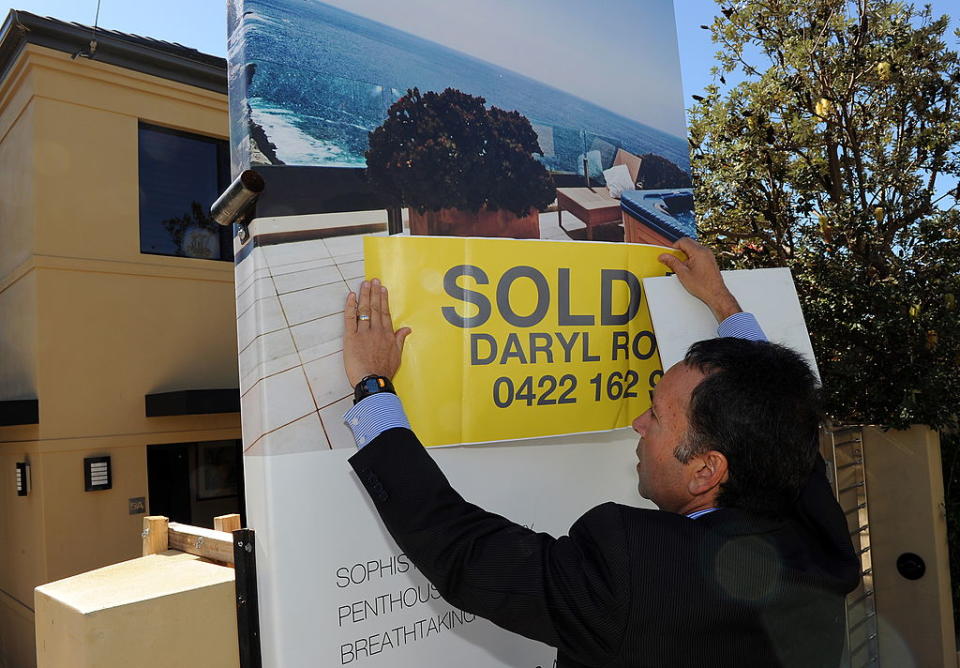5 things you must avoid when buying a home

Investing in real estate is a national pastime in Australia, but many novices get burnt after making some fundamental mistakes.
Your Property Your Wealth director Daniel Walsh told Yahoo Finance many beginners buy in the wrong location and struggle to get tenants or price growth.
"Many just don’t have the necessary nous to understand which properties are diamonds and which are duds – because often they’re buying in a location that is familiar to them such as the suburb that they are living in."
These investors just end up "hemorrhaging money" and sell at a bad time out of desperation.
"They wind up in a worse financial position than they were before," said Walsh.
"This is the worst-case scenario for people who “take a stab” at property investing without the necessary education, experience or support."
Experienced investors and buyers' agents will keep an open, non-emotive mind on the location. They also absolutely avoid properties with certain attributes, according to Walsh.
Here are the five "turn-offs" that successful investors avoid in properties:
Investment turn-off #1: swimming pools
There's a misconception, according to Walsh, that pools add value to residential properties.
"This is not correct – mainly because of the additional costs as well as compliance involved in owning a property that has a pool."
Even in warm Queensland, pools do not add any value to a home. And down in chilly Tasmania it's just an absurd way to spend money.
"Regardless of the location, many buyers don’t want the hassle of a pool, which means that if your property has one, you may need to remove it when it comes time to sell."
Investment turn-off #2: public housing
Walsh said investors should not be turned off buying former public housing – but rather should be careful about avoiding areas that have a high percentage of it.
"You would be surprised how many suburbs, including high-end ones, that still have social housing these days," he said.
"Experts know which streets to buy in and which streets to avoid to ensure they are buying where prices are likely to grow courtesy of renovation rather than stagnate."
Investment turn-off #3: transport noise
Having walking-distance access to public transport stops is fantastic for investment properties. But one needs to take caution this doesn't mean noise pollution.
"Properties on main roads or with train-lines along the back fence will usually negatively impact a dwelling’s price potential," Walsh said.
"You might be able to renovate a house, but you will never be able to do anything about its location, so it’s always best to steer clear of transport noise where possible."
Investment turn-off #4: electrical infrastructure
A lot of areas in state capitals, especially the newer outer suburbs, have electrical cables buried underground.
But neighbourhoods with unsightly cables in prominent view, or high-voltage lines, can deter potential tenants and future buyers.
"Likewise, the jury is out on whether electricity substations impact our health, so it’s always wise to stay away from properties located too close to these vital pieces of infrastructure," said Walsh.
"There is a reason why properties next door to substations are so cheap after all."
Investment turn-off #5: easements
Easements, which is when public or shared property intrudes into yours, can be harmless. But some types should be avoided at all costs, according to Walsh.
"There are usually easements on every property because of essential services, such as water and sewerage, which often run along the back-fence line or an area that won’t cause future issues," he said.
"However, power lines as well as right-of-carriageway easements are a big no-no for sophisticated investors."
Another must-avoid is a road-widening easement, which in the future could mean a road constructed very close to the home.
"The issue with easements is that they are usually not identified before a contract is unconditional, which is often what trips up novice investors," Walsh told Yahoo Finance.
"However, buyer's agents have access to this information from the outset and know to not take their enquiries any further if there is an easement red flag."
Make your money work with Yahoo Finance’s daily newsletter. Sign up here and stay on top of the latest money, news and tech news.

 Yahoo Finance
Yahoo Finance 